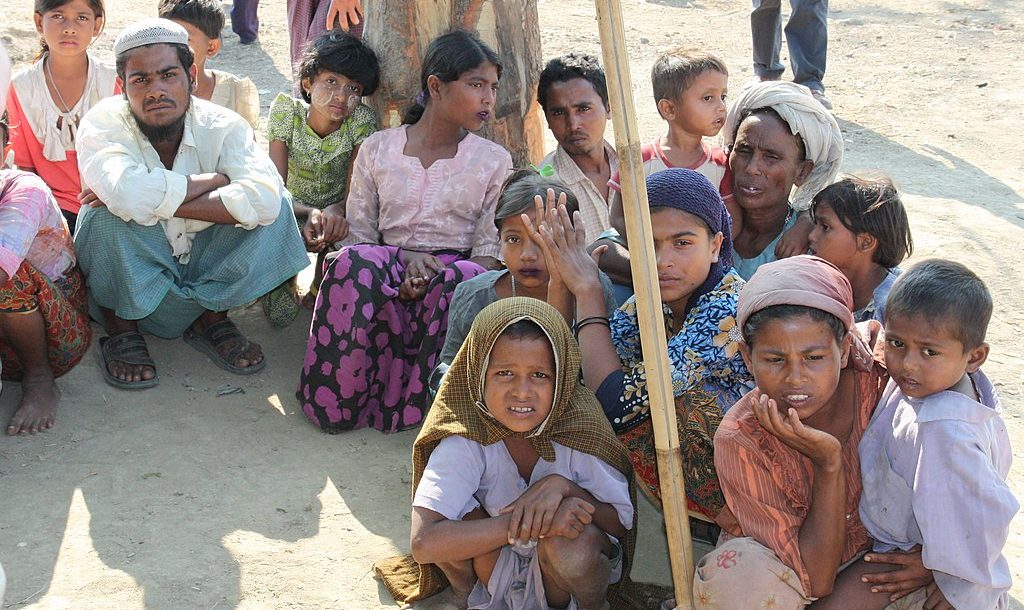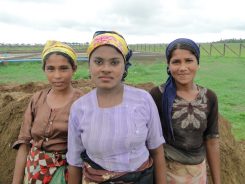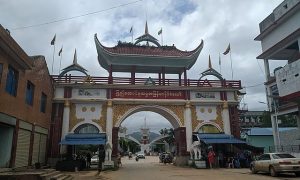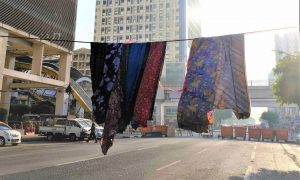On 18 May 2021, the National Unity Government (NUG) of Myanmar announced they are now in the process of drafting a new federal union constitution, which as promised by the NUG, will “guarantee democracy, national equality and self-determination based on freedom, equality and justice.”
Later in June, the shadow government, formed by lawmakers and politicians ousted in the February coup, issued a ground-breaking statement suggesting that the Rohingya people would be “entitled to citizenship by laws that will accord with fundamental human rights norms and democratic federal principles,” and once the new constitution has been drafted, Myanmar’s citizenship laws, which have been blamed for reducing the Rohingya to statelessness, could be repealed.
This promise was made over seventy years ago, when Myanmar (formerly Burma) achieved independence from Britain, and the government of the Union of Burma enacted its first constitution in 1947.
Providing a general description in terms of the classification and definition of a Myanmar citizen, the 1947 constitution effectively allowed Rohingyas to qualify for citizenship, as Myanmar citizens were defined as persons who belong to an indigenous race, have at least one grandparent from an indigenous race, are children of citizens, or lived in British Burma prior to 1942.
Unfortunately, after the coup led by Ne Win in 1962, the 1947 constitution was suspended. Ne Win’s military government enacted a new constitution in 1974 which withdrew many provisions of the 1947 constitution, and a large number of Rohingya residents in Arakan were thereafter disqualified for citizenship.
Not much has changed since then. The current constitution, enacted in 2008, requires Rohingyas to qualify for citizenship by providing proof that their parents are citizens or that they are already citizens. This is difficult, since most Rohingya people do not hold valid documents to substantiate their claim for citizenship. Thus, the 2008 Constitution continues to refuse them the possibility of becoming legitimate citizens in Myanmar.
Supplementing constitutional changes, immigration and citizenship laws have played a key role in gradually depriving Rohingyas of their citizenship in Myanmar. Some examples of such laws include the Burma Immigration (Emergency Provisions) Act of 1947, the Union Citizenship Act of 1948, and the Burma Citizenship Law of 1982.
The Burma Immigration (Emergency Provisions) Act of 1947 was originally intended to be an emergency measure regulating the entry of foreigners into Myanmar prior to its independence. Any person suspected of contravening the Act can be arrested without warrant. Myanmar’s immigration authority has the sole power to judge if a person deemed to be “foreigner” had contravened the Act, whether such a “foreigner” should be deported, and how long the “foreigner” should be detained pending deportation. A “foreigner” can also be punished with imprisonment for several years. Given its broad coverage and sweeping powers, a large number of Rohingya people have been persecuted under the Act.
The Union Citizenship Act of 1948 (UCA) was enacted to clarify the issue of citizenship in the 1947 Constitution. Narrowing the scope, article 3(1) of the Act stipulates that “indigenous races of Burma,” for the purpose of the Constitution, refers to the seven racial groups of Arakanese, Burmese (Burman), Chin, Kachin, Karen, Kayah, Mon, Shan, or racial groups that have settled in Myanmar as their permanent home before 1823. Although the Act could be subject to more expansive interpretation, the Rohingya, as a separate ethnic group, were generally not recognised as an “indigenous race.”
In 1982, Myanmar’s government repealed the UCA and enacted the Burma Citizenship Law, which formally refuted the legality of citizenship of almost all Rohingyas. Access to “naturalized citizenship” applies only to those who have entered and resided in Myanmar before 1948 and their offspring born within Myanmar, provided that “conclusive evidence” is furnished. As many Rohingyas settled in Arakan generations ago, and few of them can provide proof of residence because of low literacy and lack of record keeping, they were effectively stripped of their citizenship after enactment of this Law.
Myanmar’s constitution and states laws may be the cause of the plight of Rohingya people. However, such legal developments are tied to two larger phenomena, which both contribute to the persistent exclusion and persecution suffered by the Rohingya.
The first is nativism rooted in Myanmar’s nationalism. This Buddhism-based nationalist ideology, developed during the colonial era by the ethnic majority Burmans to oppose British rule, became the primary means for Myanmar’s political and religious leaders to pursue national stability in post-independence Myanmar. As Myanmar national identity is closely connected with Buddhism, nationalistic sentiments drive many Myanmar people to fear the invasion of “foreign” cultures that threaten Myanmar’s Buddhist culture. Muslim Rohingyas, consequently, are seen by many as “illegal immigrants” posing significant threat to the Myanmar national identity.
With notable support from the population, the Myanmar government has, throughout the years, especially the military junta, has capitalised on the widespread, long-standing public resentment of the Rohingya to consolidate support. Together with local authorities, Buddhist nationalists in Rakhine have persecuted the Rohingyas by ousting them from their jobs, shutting down mosques, confiscating property, and imprisoning or exiling community leaders.
Importantly, they have also exerted great influence in the formulation of laws restricting interfaith marriage, religious conversion, and polygamy. While constitutional reforms and the immigration and citizenship laws laid the foundation for persecution, religiously discriminatory laws, known as the “race and religion protection laws,” systematised and further intensified the pervasive discrimination against the Rohingya people.
Reductive narratives about the Rohingya trafficked by governments, NGOs and Rohingya leaders themselves contribute to the exclusion of some refugees from rights and protection.
The hidden heterogeneity of Rohingya refugees
The second phenomena is the law and order obsession. From British colonial era to the present, different governments of Myanmar have continued to pursue a governance model prioritising regime stability and efficiency. Rule of law in Myanmar essentially exists in the thin, narrow, and procedural conception, deprived of values such as equality, fairness, and protection of individual rights as in substantive justice.
There might have been some elements of substantive rule of law in the earlier post-independence years, but most of them were swept away following decades of military rule. The maintenance of law and order, through suppressing dissent and delimiting fundamental rights, was in line with the juntas’ goal of containing ethnic conflict and promoting national unity. Even today, this obsession with law and order remains strong in Myanmar’s politics.
To achieve justice for the Rohingya, drafting a new constitution and repealing discriminatory state laws is a good start. The NUG needs to develop clear vision for a more equal and inclusive Myanmar. Reforms should be proposed to improve the Rohingya’s legal status and abolish practices that violate fundamental rights. Considering the strong sentiments of Myanmar’s nationalism, instead of recognising the Rohingya as indigenous race, it may be more feasible to recognize them as naturalised citizens, thus granting them the rights to freedom of movement, communal representation, and dignified living conditions.
However, to truly put an end to the persecution of Rohingyas and promote trust between ethnic groups, it is also necessary for the people of Myanmar to rethink their understanding of nationalism. It is only with a more inclusive form of nationalism adhering to the values of equality, tolerance, and diversity, that the discriminatory attitudes toward Rohingyas can change, and effective long-term measures can be implemented to secure justice and dignity for the Rohingya people.
 Facebook
Facebook  Twitter
Twitter  Soundcloud
Soundcloud  Youtube
Youtube  Rss
Rss 



